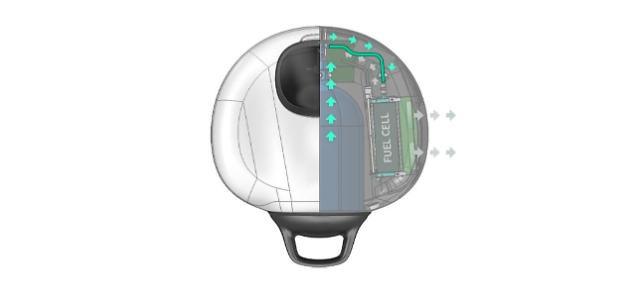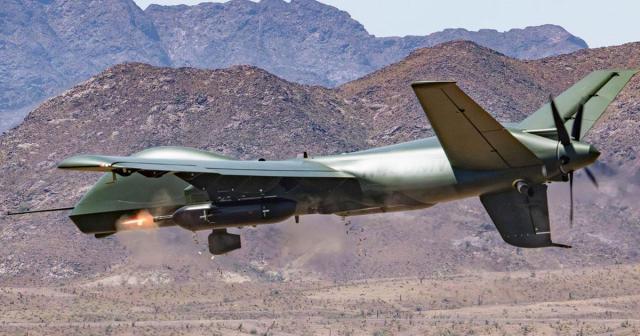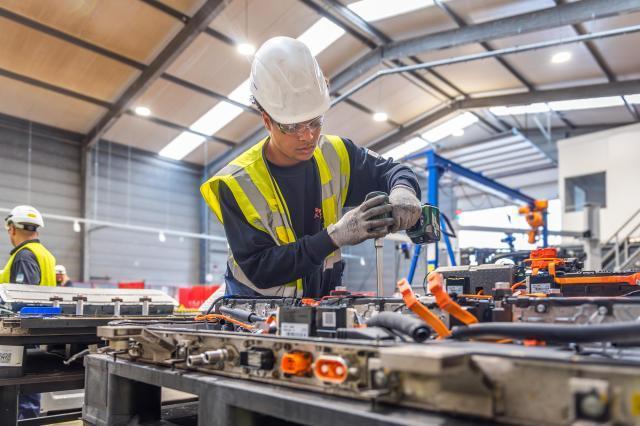
[Courtesy of Doosan Mobility Innovation]
LAS VEGAS -- Doosan Mobility Innovation signed a strategic partnership with Microsoft for the development of mobile hydrogen fuel cell pack drone software and business cooperation using cloud and artificial intelligence. The South Korean company promised to actively enter the global market by working with partners from the United States and other countries.
The range of multi-copter drones, which are now used widely, is limited due to their relatively short battery life. Hydrogen fuel cell drones with an extended flight time could become a game-changer in the global market for unmanned flying systems.
At CES 2020 in Las Vegas, a memorandum of understanding was signed between Doosan Mobility Innovation (DMI) and Microsoft Korea. They will work together on developing drone software and monitoring solutions to integrate AI and Internet of Things technologies with drones in the future and launch joint sales around the world.
"We plan to develop a customized solution by applying the latest technology from Microsoft, which has world-class competitiveness, to Doosan's hydrogen fuel cell drones that have exceeded the limits of the existing drone flight time," DMI CEO Lee Doo-sun said. "We will actively enter the global market by working with partners from the United States and other countries."
DMI, which offers drone solutions based on fuel cell power packs, plans to manage and analyze a vast amount of data collected from hydrogen fuel cell drones by utilizing Microsoft Azure Cloud's Internet of Things, machine learning and AI technologies. Microsoft Azure is a cloud computing service for building, testing, deploying, and managing applications and services through Microsoft-managed data centers.
DMI said that with a drone-mounted camera, many solar panels can be scanned in one flight, and hundreds of images can be combined into one before being able to check whether there are defects through AI. Solar power plants can be efficiently maintained by using the real-time monitoring of information essential to flight, such as power consumption, the battery state of charge and temperature.
Copyright ⓒ Aju Press All rights reserved.




View more comments